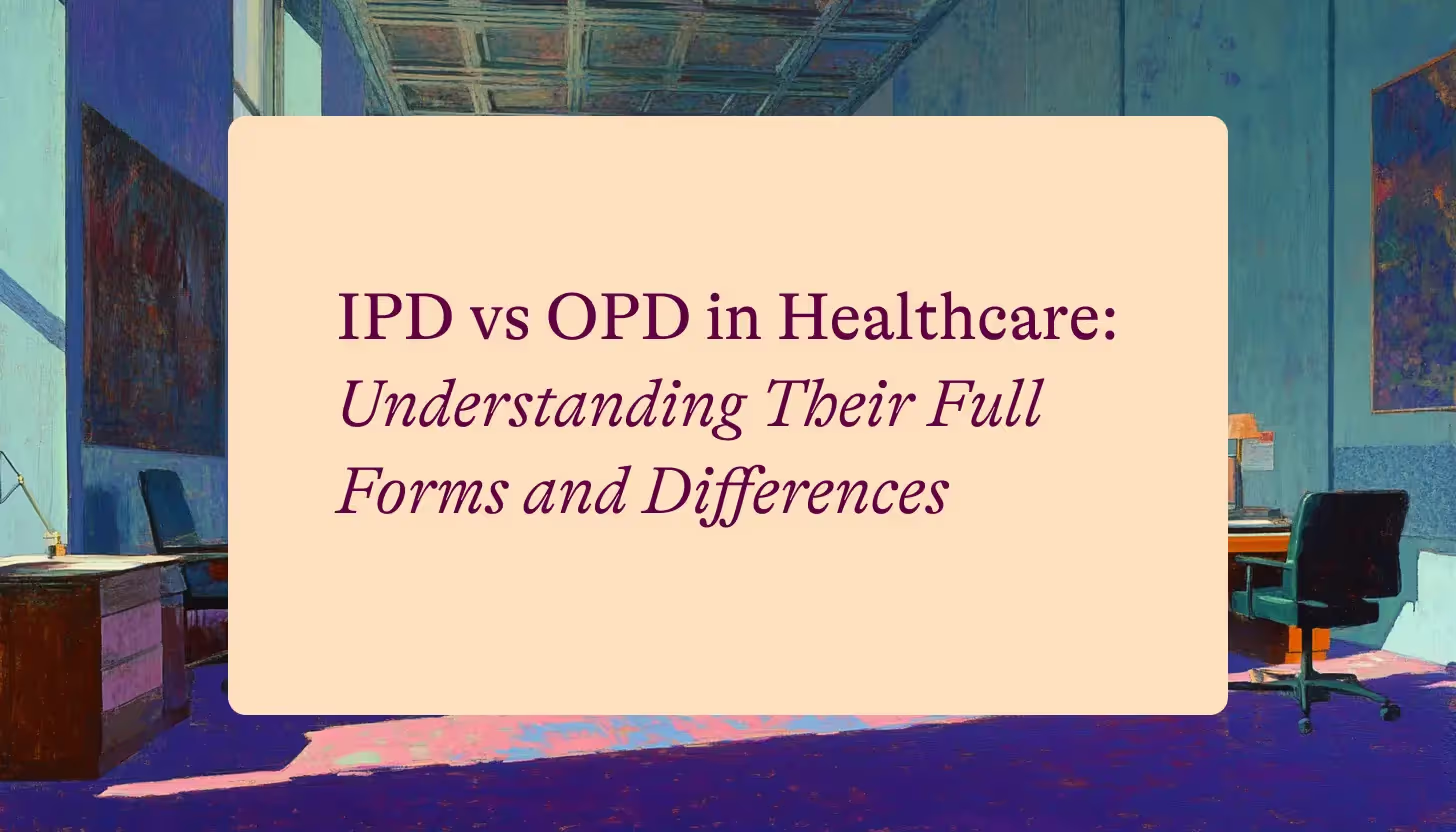In today's uncertain world, protecting yourself and your family from financial risks has become more crucial than ever. Understanding the various types of insurance available in India can help you make informed decisions about safeguarding your future. This guide explores the different insurance options available to Indian consumers, helping you choose the right coverage for your specific needs.
What is Insurance and Why Do You Need It?
Insurance is a financial safety net that protects you from unexpected expenses and provides financial security during challenging times. By paying regular premiums, you transfer the risk of potential losses to an insurance company. When you understand the different types of insurance, you can build a robust financial protection strategy that covers all aspects of your life.
The Indian insurance market has evolved significantly, offering diverse products tailored to meet the unique needs of Indian families. From protecting your health to securing your family's future, various types of insurance serve different purposes in your overall financial planning.
Life Insurance: Securing Your Family's Future
Life insurance forms the foundation of any comprehensive insurance portfolio. This type of life insurance coverage ensures that your family receives financial support in case of your untimely demise.
Term Life Insurance
Term life insurance is the most affordable among all types of insurance policies. It provides pure life coverage for a specific period, typically ranging from 10 to 40 years. The premiums are significantly lower compared to other life insurance products, making it an excellent choice for young professionals and families with limited budgets.
Key benefits include high coverage amounts at low premiums, flexibility in choosing policy terms, and the option to convert to permanent coverage. Most term policies in India also offer riders for critical illness, accidental death, and disability coverage.
Whole Life Insurance
Whole life insurance combines life coverage with an investment component. Unlike term insurance, this policy remains active throughout your lifetime as long as you pay the premiums. The cash value component grows over time, providing both protection and savings.
This type of coverage is ideal for individuals seeking lifelong protection with an investment element. The policy accumulates cash value that you can borrow against during emergencies.
Unit Linked Insurance Plans (ULIPs)
ULIPs represent a hybrid among the various types of insurance available in India. These policies combine life insurance with market-linked investments, allowing you to build wealth while maintaining life coverage.
Your premiums are invested in equity and debt funds based on your risk appetite. ULIPs offer the potential for higher returns compared to traditional life insurance policies, making them popular among investors seeking long-term wealth creation.
Health Insurance: Protecting Against Medical Expenses
Healthcare costs in India have been rising consistently, making health insurance one of the most essential types of insurance for every individual and family.
Individual Health Insurance
Individual health insurance provides coverage for personal medical expenses, including hospitalization, surgeries, and treatments. These policies offer comprehensive coverage with features like cashless treatment, pre and post-hospitalization expenses, and coverage for critical illnesses.
Modern individual health insurance policies in India include wellness benefits, preventive care coverage, and telemedicine services. The coverage amounts typically range from ₹1 lakh to ₹1 crore or more.
Family Floater Health Insurance
Family floater health insurance policies cover your entire family under a single sum insured. This cost-effective option allows all family members to share the coverage limit, making it more affordable than buying individual policies for each member.
These policies typically cover spouse, dependent children, and parents under one umbrella. The flexibility of utilizing the entire sum insured by any family member makes it one of the most practical types of insurance for families.
Critical Illness Insurance
Critical illness insurance provides a lump sum payment upon diagnosis of specified serious illnesses like cancer, heart attack, stroke, or kidney failure. This coverage helps manage the financial impact of expensive treatments and income loss during recovery.
The policy pays the entire sum assured upon diagnosis, regardless of actual medical expenses incurred. This financial cushion allows you to focus on recovery without worrying about medical bills.
General Insurance: Comprehensive Asset Protection
General insurance encompasses various types of insurance that protect your assets and provide liability coverage.
Motor Insurance
Motor insurance is mandatory for all vehicle owners in India. This coverage protects against financial losses due to accidents, theft, or damage to your vehicle.
Third Party Insurance
Third-party insurance is the minimum legal requirement that covers damages caused to other people's property or injuries to third parties in an accident. While affordable, this coverage doesn't protect your own vehicle.
Comprehensive Motor Insurance
Comprehensive coverage protects both third-party liabilities and damages to your own vehicle. It includes coverage for accidents, theft, fire, natural disasters, and vandalism. Additional benefits like roadside assistance, engine protection, and zero depreciation coverage can be added through riders.
Home Insurance
Home insurance protects your property and belongings against various risks like fire, theft, natural disasters, and other unforeseen events. This type of coverage includes both the structure of your home and the contents within it.
Standard home insurance policies cover the building structure, household contents, personal belongings, and additional living expenses if you need temporary accommodation due to covered damages. Some policies also include liability coverage for accidents occurring on your property.
Travel Insurance
Travel insurance provides coverage for various risks associated with domestic and international travel. This includes medical emergencies, trip cancellations, lost baggage, flight delays, and personal liability during travel.
With the increasing trend of international travel among Indians, travel insurance has become one of the essential types of insurance. Coverage includes emergency medical expenses, medical evacuation, trip interruption, and coverage for adventure sports.
Specialized Insurance Products
Professional Indemnity Insurance
Professional indemnity insurance protects professionals against claims of negligence, errors, or omissions in their professional services. This coverage is particularly important for doctors, lawyers, architects, consultants, and other service professionals.
The policy covers legal costs, compensation payments, and defense expenses arising from professional liability claims. As professional services become more regulated, this type of coverage is becoming increasingly important.
Cyber Insurance
With increasing digitization, cyber insurance has emerged as one of the newer types of insurance in India. This coverage protects businesses and individuals against cyber threats, data breaches, and online fraud.
Coverage includes data recovery costs, legal expenses, business interruption losses, and liability for third-party data breaches. As cyber threats continue to evolve, this insurance type is gaining significant importance.
Choosing the Right Insurance Mix
Selecting the appropriate types of insurance requires careful consideration of your life stage, financial responsibilities, and risk tolerance. Young professionals should prioritize term life insurance and health coverage, while families with dependents need comprehensive life and health insurance.
Business owners require additional coverage like professional indemnity and commercial insurance. The key is to assess your specific risks and choose coverage that provides adequate protection without over-insuring.
Consider factors like your age, income, dependents, existing assets, and future financial goals when selecting insurance products. Regular review and adjustment of your insurance portfolio ensure that your coverage remains relevant as your circumstances change.
Tips for Buying Insurance in India
Research different insurers and compare their claim settlement ratios, customer service records, and financial stability. Read policy documents carefully and understand exclusions, waiting periods, and claim procedures.
Consider buying insurance online for better rates and convenience. Many insurers offer online discounts and streamlined processes for policy purchase and renewals.
Maintain accurate records of all policies and ensure timely premium payments to avoid policy lapses. Consider working with insurance advisors for complex insurance needs or when managing multiple policies.
Frequently Asked Questions (FAQs)
Q1: What are the most important types of insurance for Indians?
A: The most essential types of insurance for Indians include term life insurance, health insurance, and motor insurance (if you own a vehicle). These provide basic financial protection for most common risks.
Q2: How much life insurance coverage do I need?
A: A general rule is to have life insurance coverage of 10-15 times your annual income. However, this depends on your financial obligations, dependents, existing assets, and future goals.
Q3: Can I buy multiple types of insurance from the same company?
A: Yes, many insurance companies offer multiple products. Buying different types of insurance from the same insurer may provide benefits like premium discounts and simplified claim processes.
Q4: What is the difference between term insurance and whole life insurance?
A: Term insurance provides coverage for a specific period at lower premiums, while whole life insurance offers lifelong coverage with an investment component but at higher premiums.
Q5: Is health insurance tax-deductible in India?
A: Yes, health insurance premiums are eligible for tax deduction under Section 80D of the Income Tax Act. You can claim deductions up to ₹25,000 for self and family, and additional ₹25,000 for parents.
Q6: How do I choose the right health insurance policy?
A: Consider factors like sum insured, network hospitals, claim settlement ratio, waiting periods, exclusions, and premium costs. Choose coverage that adequately meets your healthcare needs and budget.
Q7: What types of insurance are mandatory in India?
A: Motor insurance (third-party coverage) is mandatory for all vehicle owners. Additionally, some employers are required to provide group insurance coverage for employees under certain circumstances.
Q8: Can I claim insurance from multiple policies for the same incident?
A: For life insurance, you can claim from multiple policies. For health and general insurance, you can claim from multiple policies, but the total claim amount cannot exceed the actual loss incurred.
Understanding the various types of insurance available in India empowers you to make informed decisions about protecting your financial future. Start with basic coverage like term life insurance and health insurance, then gradually expand your portfolio based on changing needs and circumstances. Remember, insurance is not just about protection – it's about providing peace of mind and financial security for you and your loved ones.
.avif)










.avif)














